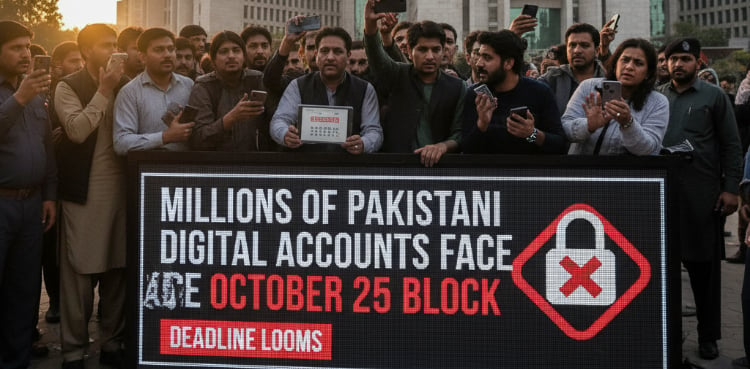In Pakistan, millions of digital bank account and e-wallet users could face service interruptions from 25 October, as the State Bank of Pakistan’s (SBP) new biometric verification regulations come into effect.
The new rules, introduced through BPRD Circular No. 1 of 2025 on July 25, require all SBP-regulated entities, including banks, development finance institutions (DFIs), microfinance banks (MFBs), digital banks, and electronic money institutions (EMIs), to update their account opening and customer onboarding processes.
Under the revised framework, biometric verification will be mandatory as the primary method of identity for all individual and entity accounts, in both local and foreign currencies, including Roshan Digital Accounts.
Earlier, financial institutions were permitted a 60-day grace period to complete biometric verification, after which accounts would be blocked from debits.
Industry sources cautioned that the policy shift could temporarily lock out a large number of users who have yet to complete the process, disrupting access to their accounts and digital wallets.
Concerns have also been raised over the potential impact on customers managing foreign currency accounts, who may face restrictions on sending or receiving remittances.
The central bank granted institutions three months to implement the new rules, which are a part of a broader effort to strengthen anti–money laundering (AML) and counter–terrorism financing (CFT) protocols.
The updated ‘Consolidated Customer Onboarding Framework’ now extends to both in-branch and remote onboarding, standardising due diligence requirements across all SBP-regulated entities.
Under the previous 2022 guidelines, verification through the National Database and Registration Authority’s (NADRA’s) Verisys system was sufficient at account opening, with biometric verification required within two months.
The revised 2025 framework, however, mandates biometric verification at the very outset before the account or wallet can be activated for all holders of CNIC, NICOP, POC, ARC, or POR cards.

